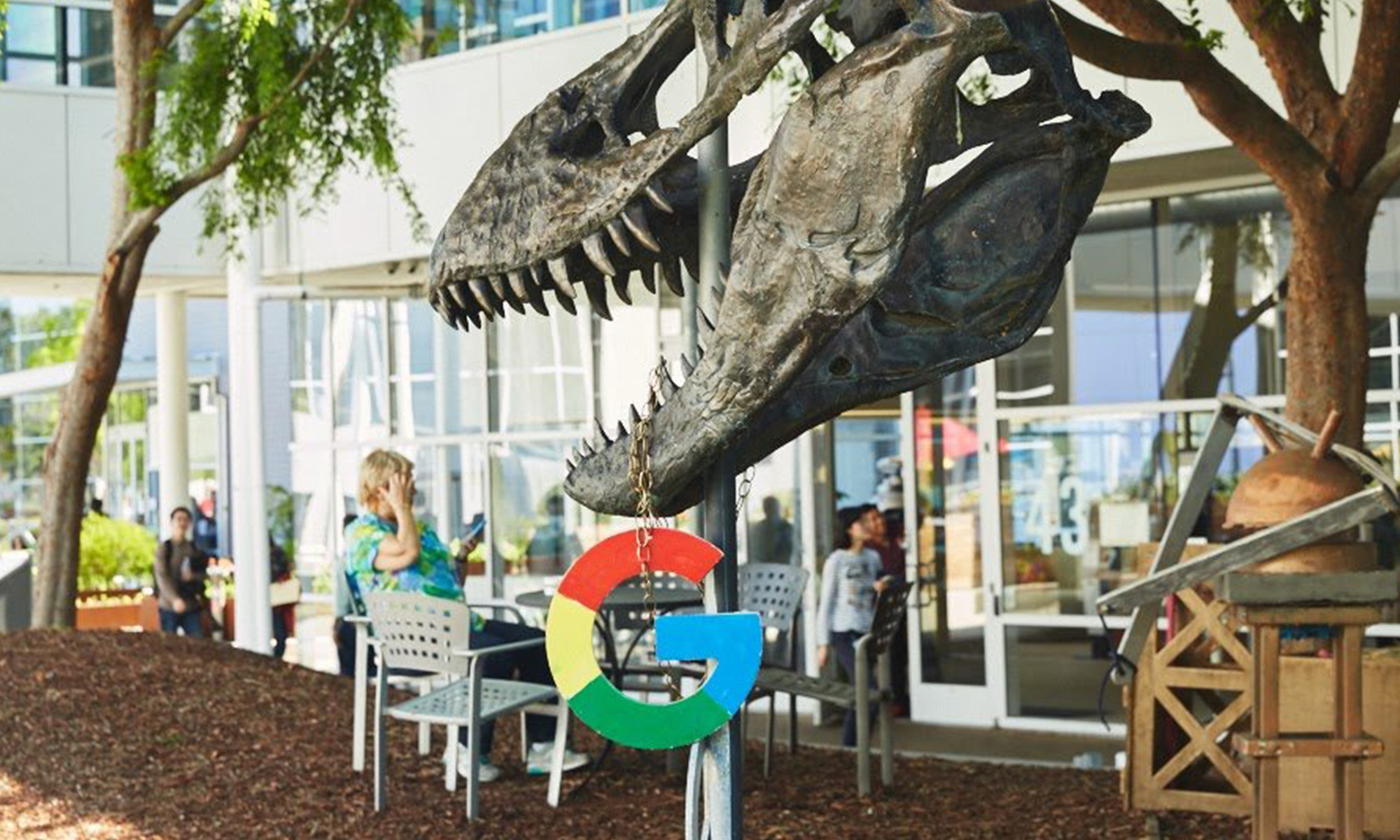Who needs an amusement park when you have Wall Street? Over the trailing-two-year period, investors have witnessed the major stock indexes surge to new highs, plummet into their second bear market in as many years, and now rally into what some investors would deem is a new bull market.
When volatility picks up, investors have a tendency to gravitate to trusted companies that have a history of outperforming the broad-market indexes. In 2023, it's been the "magnificent seven" that investors have flocked to.

Image source: Getty Images.
The magnificent seven is comprised of:
- Apple (AAPL 1.58%)
- Microsoft (MSFT 1.13%)
- Alphabet (GOOGL +0.73%)(GOOG +0.34%)
- Amazon (AMZN +1.18%)
- Nvidia (NVDA 1.85%)
- Tesla (TSLA 0.29%)
- Meta Platforms (META 1.78%)
What makes these seven companies so popular with investors is that they offer sustained and/or virtually impenetrable moats within their respective industries:
- Apple consistently accounts for around half of all U.S. smartphone market share.
- Microsoft's Windows operating system remains globally dominant on desktops, while Azure is the world's No. 2 cloud infrastructure service provider by market share.
- Alphabet's Google accounts for 92% of global internet search share, as of July 2023.
- Amazon's online marketplace brings in roughly 40% of U.S. online retail sales, while Amazon Web Services is the world's leading cloud infrastructure service provider.
- Nvidia controls up to 90% of artificial intelligence (AI)-driven graphics processing units deployed in high-compute data centers.
- Tesla is the only pure-play electric-vehicle (EV) manufacturer that's profitable on a recurring basis.
- Meta Platforms' four key social media sites (Facebook, Instagram, WhatsApp, and Facebook Messenger) attracted nearly 3.9 billion monthly active users in the June-ended quarter.
To boot, these seven stocks have absolutely run circles around the benchmark S&P 500 since the year began. Through Aug. 4, 2023, Nvidia, Meta, and Tesla were higher by 206%, 158%, and 106%, respectively year to date, while the remaining four magnificent seven stocks were higher by between 37% and 66%.
However, not all magnificent seven stocks are cut from the same cloth. Though they've outperformed through the first seven months and change of 2023, one still stands out as an exceptional value while another has had its growth engine completely stall out.
The magnificent seven stock to buy hand over fist in August: Alphabet
Despite bouncing back strongly from its 2022 bear market lows, Alphabet is the magnificent seven stock that looks like a phenomenal buy in August. Alphabet is the parent company of Google, streaming platform YouTube, and autonomous driving company Waymo.
As I've pointed out many times before and will continue to note in the future, even the best stocks have challenges they're contending with -- and Alphabet is no different. For this company, concerns about economic weakness are front and center.
During the June-ended quarter, Alphabet generated $58.1 billion (77.9% of total sales) of its revenue from advertising on Google and YouTube. Advertisers usually pare back their spending at the first hint of economic weakness. At the moment, an assortment of economic data points and predictive tools suggest a U.S. recession is likely. Should that happen, it wouldn't be a surprise to see the company's ad growth slow or stall out completely.

NASDAQ: GOOGL
Key Data Points
But there's a big difference between recessions and economic expansions that investors would be wise to recognize. Whereas every recession after World War II has been short-lived, virtually every period of expansion has been measured in multiple years. For Alphabet, it means strong ad-pricing power will be on its side more often than not.
For the moment, Google is the company's primary source of operating cash flow. Google has sustained at least a 90% monthly share of worldwide internet search since April 2015, according to data provided by GlobalStats. With a roughly 90 percentage-point lead over its next-closest competitor, Google should have no trouble taking advantage of domestic and international economic growth over the long run.
However, it's the company's faster-growing ancillary ventures that really have the attention of Wall Street and investors. For instance, Google Cloud recently reported its second consecutive quarter with an operating profit.
Google Cloud accounted for 9% of worldwide cloud infrastructure service spending in the first quarter, which places it behind only Amazon and Microsoft. Since enterprise cloud spending is still in its very early stages, this segment can be a source of serious cash-flow creation by the second half of the decade.
There's also YouTube, which is the second-most-visited social media site behind only Facebook. In a span of two years, the number of Shorts -- short-form videos typically lasting less than 60 seconds -- viewed daily on YouTube has surged from 6.5 billion to more than 50 billion. This is an incredible monetization opportunity for the company.
Over the trailing five years, Alphabet's shares have traded at an average multiple to cash flow of 18.2. Investors can buy in right now for less than 14 times the consensus cash flow per share in 2024. This makes Alphabet stock one heck of a value that can confidently be purchased hand over fist in August.

Image source: Apple.
The magnificent seven stock to avoid like the plague in August: Apple
Just because the magnificent seven stocks have outperformed thus far in 2023 doesn't make them all worth buying. The perfect case in point is tech stock Apple, which can be avoided like the plague by investors.
Just as the best stocks have headwinds to contend with, even stocks to avoid have potential catalysts. Apple is certainly not short on competitive edges and catalysts. Aside from being the leading smartphone company in the U.S., it has an exceptionally loyal customer base and one of the best-recognized brands in the world.
What's more, Apple is in the process of transforming itself into a platforms company under the watchful eye of CEO Tim Cook. Services revenue continues to hit new all-time highs. More importantly, subscriptions should lift the company's operating margin over the long run, as well as smooth out the sales fluctuations often observed during iPhone replacement cycles.
Even Apple's capital-return program is a source of optimism. The company has repurchased in the neighborhood of $600 billion worth of its common stock since commencing a buyback program in 2013.
But this is where the good news ends for Wall Street's most valuable company by market cap.

NASDAQ: AAPL
Key Data Points
The biggest issue for Apple is that its growth engine has completely stalled out. Apple's fiscal third-quarter operating results (Apple's fiscal year ends in late September) showed a third consecutive quarter of declining year-over-year sales. Wall Street's current consensus calls for full-year sales and profits to drop by a low-single-digit percentage in fiscal 2023.
What's problematic is that Apple's stock has surged 40% this year with its sales and profits going backwards. What makes this move higher even more egregious is that Apple has had historically high inflation as a tailwind, and this still hasn't helped it grow its sales.
To add, some of Apple's innovations aren't hitting home like we're used to seeing. Initial reports had suggested that Apple would ramp up production of iPhone 14 following its release. But when demand failed to materialize, it halted efforts to scale production.
We're now seeing something similar with the recently introduced virtual/augmented reality goggles, Vision Pro. While the company had envisioned bringing 1 million of the devices to market, reports now suggest the company is only targeting production of 400,000 units in the first year.
Lastly, Apple is anything but cheap. Even after the company's sell-off late last week, investors are paying nearly 28 times forward-year earnings and almost 23 times consensus cash flow to own shares of Apple. With the exception of the volatile pandemic years (2020-2021), this is the priciest Apple stock has been in a long time.












